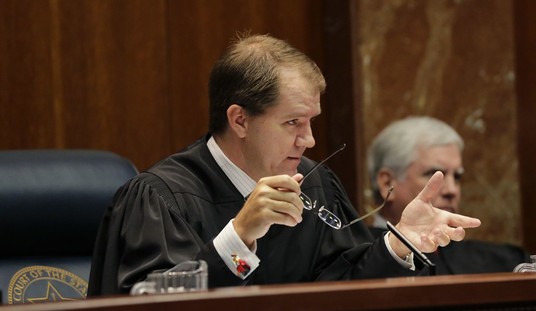Since 2018, the financial giant Citigroup has had a policy in place restricting some services to businesses operating within the firearms industry. The move, which came under immense pressure from gun control activists intent on exploiting the murders at Marjory Stoneman Douglas High School in Parkland, Florida, required gun-related businesses to adhere to a code of conduct that included requiring background checks on gun sales (a given for federally licensed firearm retailers), not selling guns to adults younger than 21, and not selling bump stocks or "high capacity" magazines.
On Tuesday, however, Citi announced that policy is no longer in force.
Again, all firearm retailers are putting buyers through a background check. That was a non-issue, as far as "best practices" go. But if Skyler honestly believes that "many" FFLs are willfully prohibiting gun sales to adults under 21 and are refusing to stock "large capacity" magazines he's deluding himself.
I suspect that the banking exec is smarter than that, and his statement was nothing more than an attempt to diminish the importance of Citi's reversal... and the reason for it.
The change at Citigroup comes amid broader political pressure over so-called "debanking," with influential tech leaders and right-wing officials having alleged in recent years that the Biden administration was improperly blocking certain people, including cryptocurrency proponents and conservatives, from banking services.
That argument hasn't gone away since President Donald Trump returned to the White House; he confronted the CEOs of America's two largest banks — Bank of America and JPMorgan Chase — with similar complaints at the World Economic Forum in Davos, Switzerland, earlier this year. Both banks said at the time that they would never close an account for political reasons. Bank of America said, "We welcome conservatives and have no political litmus test."
Citi said Tuesday that it would "update our employee Code of Conduct and our customer-facing Global Financial Access Policy to clearly state that we do not discriminate on the basis of political affiliation in the same way we are clear that we do not discriminate on the basis of other traits such as race and religion. This will codify what we’ve long practiced, and we will continue to conduct trainings to ensure compliance."
The gun control edicts that Citi put in place weren't exactly discriminatory on the basis of political affiliation, much less race or religion. Ironically, though, in the case of banning adults younger than 21 from purchasing firearms, the policy itself required FFLs to discriminate against a particular class of customers.
The now-rescinded policy was discriminatory on the basis of support for an enumerated individual right, which doesn't just make it legally questionable but just as morally repugnant if Citi had a similar policy disfavoring booksellers because they carry erotic fiction or tomes filled with graphic depictions of sex, drugs, and violence.
This is a big win for gun owners, but I have no doubt that if Citi wasn't feeling the heat from the Trump administration and Republicans in Congress this discriminatory policy would still be in place, with no plans to remove or revise it. Citi's making the right move, but it's not out of any newfound respect for gun owners or the right to keep and bear arms.
Citi's decision is about recognizing that the federal government poses a bigger threat to their bottom line at the moment than all the anti-gun groups put together. In order to keep these policies from being reimplemented at the first politically expedient opportunity it's imperative that Congress and state legislatures adopt bills that prohibit this kind of discrimination going forward. Several states have already done so (something we'll be talking about with NSSF's Larry Keane on Wednesday's Cam & Co), but there's still a lot more work to be done to ensure that gun-related businesses aren't getting shafted and shunned by big banks.









Join the conversation as a VIP Member